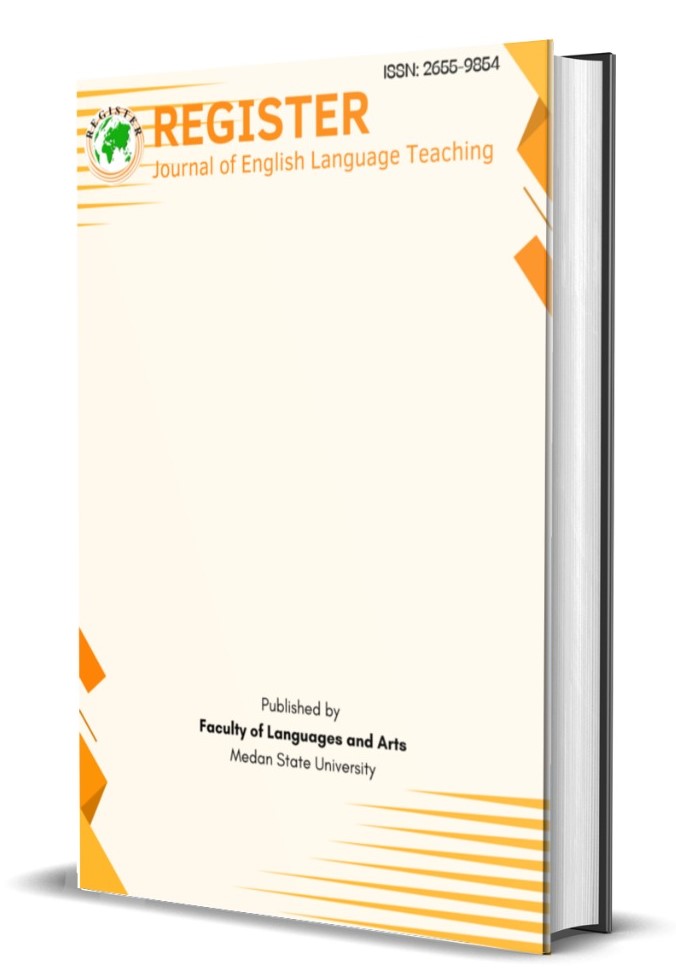Grammar Error Patterns in The English Translation of The Maluku Folktale Batu Penyu.
-
DOI:
https://doi.org/10.24114/reg.v14i2.66084Abstract
In this article, the author examines the grammatical errors from the perspective of semantics, wrong meaning substitution, phrases, idioms, and other parts of the English translation of the Moluccan (Maluku) folktale Batu Penyu in terms of pedagogical translation structure and cultural heritage preservation. This study describes the systematic errors found in the translation from Indonesian and local languages of folktales into English that can reduce clarity and diminish comprehension value in the context of translation as an educational text for young learners. The study is set up as a descriptive qualitative analysis with AI, helps by ChatGPT-4Turbo and Gemini Advanced, spotting mistakes in a language system changed by Hawkins and Norton (2020) using a comparing method marked by G1 through G10 in the form of neat tables. There were 20 grammar mistakes; 5 syntax errors were the most major type followed by 4 lexical difficulty issues and 3 semantic mismatch cases. Findings from this study further illuminate the presence of cross-cultural language adaptation issues concerning idiomatic expressions and references. This study greatly contributes to the ongoing academic conversation regarding how appropriate translation can foster English as a Second Language acquisition and intercultural communication.Downloads
Published
Issue
Section
License
Copyright (c) 2025 Rahma Ibtida Saumi, Rahmania Ananda, Miftahul Jannah, Abdul Syahid

This work is licensed under a Creative Commons Attribution-NonCommercial-ShareAlike 4.0 International License.
Authors who publish with this journal agree with the following terms:
- Authors retain copyright and grant the journal right of first publication with the work simultaneously licensed under a Creative Commons Attribution License that allows others to share the work with an acknowledgment of the work's authorship and initial publication in this journal.
- Authors are able to enter into separate, additional contractual arrangements for the non-exclusive distribution of the journal's published version of the work (e.g., post it to an institutional repository or publish it in a book), with an acknowledgement of its initial publication in this journal.
- Authors are permitted and encouraged to post their work online (e.g., in institutional repositories or on their website) prior to and during the submission process, as it can lead to productive exchanges, as well as earlier and greater citation of published work (See The Effect of Open Access).
- This work is licensed under a Creative Commons Attribution-ShareAlike 4.0 International License.








